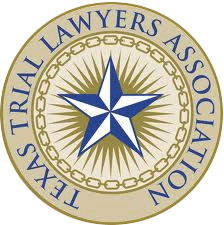Car accidents can be life-altering events, leaving victims with physical injuries, emotional trauma, and financial burdens. In Texas, proving fault in a car accident is crucial for victims seeking compensation for their damages. Establishing liability involves understanding the legal framework, gathering evidence, and presenting a compelling case. This comprehensive guide will help you navigate the complexities of proving fault in a Texas car accident, ensuring you are well-prepared to secure the compensation you deserve.








Understanding Texas Fault Laws
Texas follows a “fault” system when it comes to car accidents, meaning that the driver who is found to be at fault for the accident is responsible for compensating the injured parties. Unlike some states that follow a no-fault system, Texas requires the determination of liability to proceed with claims for medical expenses, lost wages, property damage, and other related costs. The fault system encourages drivers to exercise caution and adhere to traffic laws, knowing that they could be held financially accountable for their actions on the road.
To establish fault, Texas employs the modified comparative negligence rule. This rule allows an injured party to recover damages as long as they are not more than 50 percent at fault for the accident. However, their compensation will be reduced by their percentage of fault. For instance, if you are found to be 30 percent at fault and your total damages amount to $100,000, you would be entitled to $70,000. This rule underscores the importance of minimizing your own liability while maximizing the evidence against the other party.
Collecting Evidence at the Accident Scene
The foundation of proving fault lies in the evidence collected immediately after the accident. Your actions at the scene can significantly impact the outcome of your case. First and foremost, ensure that everyone involved receives necessary medical attention. Safety should always be the top priority. Once everyone is safe, you can focus on gathering evidence.
Photographs and videos are invaluable in documenting the accident scene. Capture images of vehicle damage, road conditions, skid marks, traffic signs, and any visible injuries. These visual records provide a clear and objective depiction of the aftermath, helping to establish the sequence of events. Additionally, note the weather conditions and the time of day, as these factors can influence the accident dynamics.
Eyewitness statements are another crucial piece of evidence. If there are witnesses, collect their contact information and statements about what they observed. Eyewitnesses can provide an unbiased account of the accident, corroborating your version of events. Be sure to record their names, phone numbers, and addresses. Their testimonies can be instrumental in building a strong case.

Protecting Your Rights
Police Reports and Official Documentation
In Texas, it is mandatory to report any car accident that results in injury, death, or significant property damage to the police. The responding officers will create an official report detailing their observations, witness statements, and any citations issued. This police report is a critical piece of evidence that can support your claim.
Obtain a copy of the police report as soon as it becomes available. Review it carefully for accuracy and completeness. If you notice any discrepancies or missing information, address them promptly. The report can provide an authoritative account of the accident, reinforcing your position on fault.
Medical records are also essential in proving fault and the extent of your injuries. Seek medical attention immediately after the accident, even if you feel fine. Some injuries may not manifest symptoms right away, and a medical professional can document your condition accurately. Keep all medical records, including doctor’s notes, test results, and treatment plans. These documents establish a direct link between the accident and your injuries, substantiating your claim for damages.
Witness Statements and Testimonies
Witness statements play a pivotal role in corroborating your version of events. Reach out to any witnesses who provided their contact information at the scene. Ask them to provide written statements detailing what they saw and heard. Their accounts can help paint a clear picture of how the accident occurred and who was at fault.
In some cases, testimonies may be necessary to establish fault. Accident reconstruction specialists, for instance, can analyze the evidence and recreate the accident scenario. Their experience can provide valuable insights into the dynamics of the collision, supporting your claim. Medical professionals can also testify about the extent of your injuries and the long-term impact on your life. These testimonies carry significant weight in court and can strengthen your case considerably.
Insurance Companies and Negotiations
Dealing with insurance companies can be challenging, as their primary goal is to minimize payouts. It is crucial to approach negotiations with a well-prepared case and a clear understanding of your rights. Notify your insurance company about the accident as soon as possible and provide them with all necessary documentation.
When communicating with the at-fault party’s insurance company, be cautious. Avoid making any statements that could be interpreted as admitting fault. Stick to the facts and let the evidence speak for itself. Insurance adjusters may try to downplay your injuries or dispute liability. Stay firm and present your evidence confidently.
If negotiations with the insurance company do not yield a satisfactory settlement, you may need to consider filing a lawsuit. An experienced personal injury attorney can guide you through this process, ensuring that your case is presented effectively in court. Legal representation is invaluable when dealing with complex negotiations and litigation.
The Role of Comparative Negligence
Texas’ modified comparative negligence rule can significantly impact the outcome of your case. Understanding how this rule applies to your situation is essential. Comparative negligence means that each party’s degree of fault is considered, and compensation is adjusted accordingly.
If the other party claims that you were partially at fault for the accident, gather evidence to counter their assertions. This could include witness statements, surveillance footage, or testimonies. Demonstrating that the other party’s negligence was the primary cause of the accident is crucial in maximizing your compensation.
Legal Assistance and Representation
Proving fault in a Texas car accident can be a complex and demanding process. Navigating the legal system, gathering evidence, and negotiating with insurance companies require a comprehensive understanding of personal injury law. Seeking legal assistance from a personal injury attorney can significantly enhance your chances of success.
An attorney can conduct a thorough investigation into the accident, identifying key evidence and witnesses. They can handle all communications with insurance companies, ensuring that your rights are protected. If your case goes to court, an attorney can present a compelling argument, backed by evidence and testimonies.
At Chavez Law Firm, we are committed to helping car accident victims in Texas secure the compensation they deserve. Our experienced attorneys understand the intricacies of proving fault and are dedicated to advocating for your rights. We will guide you through every step of the process, from gathering evidence to negotiating with insurance companies and representing you in court if necessary.
Contact Chavez Law Firm Today
If you have been involved in a car accident in Texas and need assistance proving fault, Chavez Law Firm is here to help. Our dedicated team of personal injury attorneys has a proven track record of success in handling car accident cases. We understand the challenges you are facing and are committed to providing the legal support you need.
Contact us today to schedule a consultation and learn more about how we can assist you in your car accident claim. Let Chavez Law Firm be your advocate, ensuring that your rights are protected and that you receive the compensation you deserve. Don’t face this challenging time alone. Reach out to Chavez Law Firm and take the first step towards securing your future.



